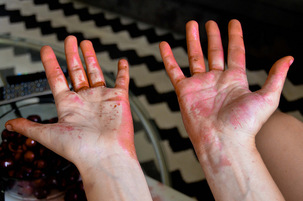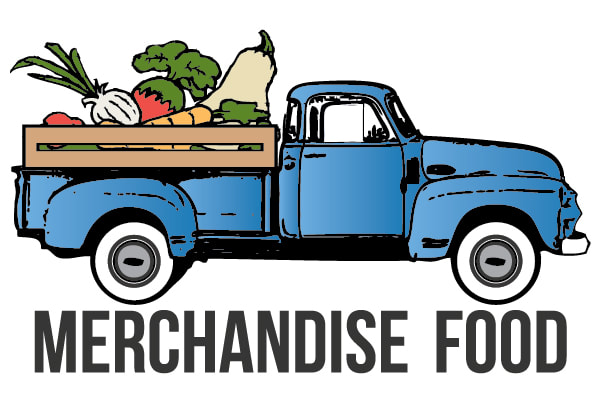
Today we'll look at more on fresh produce shrink. We're discussing unrecorded unknown shrink also known as magical "vanishing" produce. Independent grocery and produce markets all face a hopefully minor cause of shrink which involves theft and eating of food products.
We've all seen infamous cherry pits in the bottom of season display left by a customer "caught "red handed" who might have sampled one, or likely more like 20 cherries before making a purchase. Unfortunately many guests never purchase, because they've already had their fill.
I would never recommend this response, but I've heard tell of a produce manager who observed this happening. After the customer left, he gathered the entire case of cherries a customer had spit pits into on the retail sales floor, priced them, and headed to the register. When the customer arrived at the register he handed the bag of cherries to the cashier, likely a $50 dollar purchase or more, and said, "Ring these up too!" The customer had certainly compromised food safety integrity, but this great way to lose customers. I had to laugh!
Consumer theft is a nuisance most often left to professionals in our grocery loss prevention departments, but what about all those grapes that people need to taste? Certain products have a high instance of consumer "testing". Grapes and cherries in particular are frequently consumed in store.
Solution: There are ways to offset potential unknown shrink. If a customer asks to taste a grape, a good employee would be hard pressed to deny them, so don't. Instead, protect your bottom line by writing down the pack on these products by 1/4 lb per case, to build in a slightly higher cost basis, but know what you are spending it on is good customer relations, and it will stay out of the unknown shrink column.
Anytime we can appropriately move unknown shrink into the known column it is helpful in understanding where opportunities and hurdles are preventing gross profits.
We've all seen infamous cherry pits in the bottom of season display left by a customer "caught "red handed" who might have sampled one, or likely more like 20 cherries before making a purchase. Unfortunately many guests never purchase, because they've already had their fill.
I would never recommend this response, but I've heard tell of a produce manager who observed this happening. After the customer left, he gathered the entire case of cherries a customer had spit pits into on the retail sales floor, priced them, and headed to the register. When the customer arrived at the register he handed the bag of cherries to the cashier, likely a $50 dollar purchase or more, and said, "Ring these up too!" The customer had certainly compromised food safety integrity, but this great way to lose customers. I had to laugh!
Consumer theft is a nuisance most often left to professionals in our grocery loss prevention departments, but what about all those grapes that people need to taste? Certain products have a high instance of consumer "testing". Grapes and cherries in particular are frequently consumed in store.
Solution: There are ways to offset potential unknown shrink. If a customer asks to taste a grape, a good employee would be hard pressed to deny them, so don't. Instead, protect your bottom line by writing down the pack on these products by 1/4 lb per case, to build in a slightly higher cost basis, but know what you are spending it on is good customer relations, and it will stay out of the unknown shrink column.
Anytime we can appropriately move unknown shrink into the known column it is helpful in understanding where opportunities and hurdles are preventing gross profits.


 RSS Feed
RSS Feed
